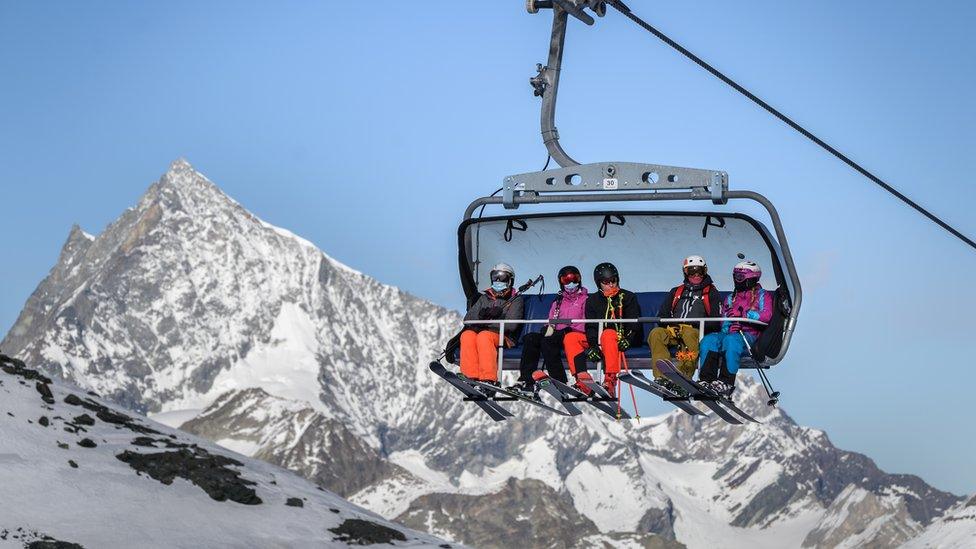Coronavirus: Swiss count cost of surge in deaths
- Published
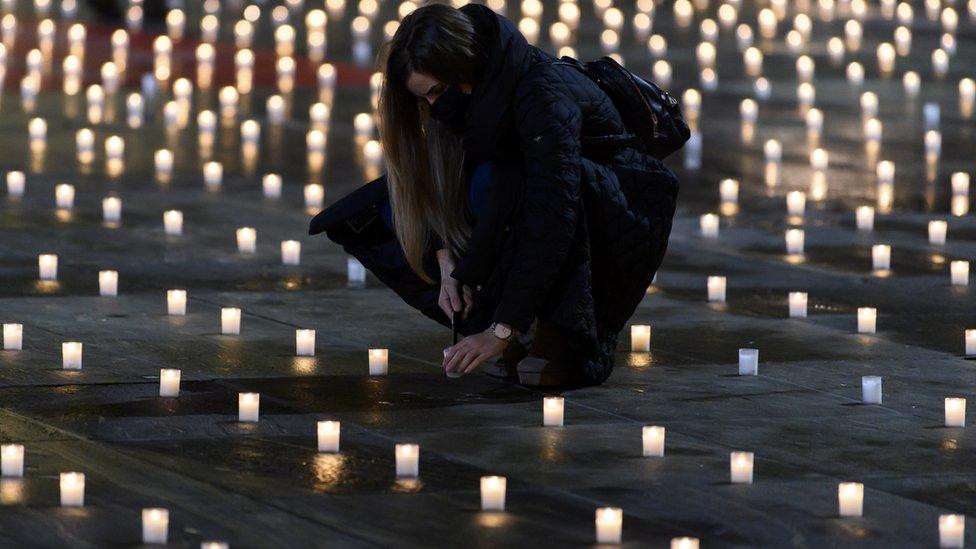
Another 102 deaths were announced on Thursday: here activists in Bern light candles for the thousands who have died
"Not every death is a catastrophe." With these words Swiss member of parliament Ruth Humbel ignited a debate that had been smouldering in Switzerland ever since the Covid-19 pandemic began back in March.
She was taking part in a televised discussion - Swiss TV's 18th since the first case of the virus was recorded here. The aim this time was to talk about how to get through the winter, but Ms Humbel's comments soon dragged the debate into a row about whether any, or how many, deaths from Covid could be deemed acceptable.
Have the Swiss had a lot of Covid deaths?
Not at the start. In early summer the Swiss seemed to have beaten back the virus with ease, schools and restaurants were re-opened in early May, just about everything else in June, and the first wave ended with fewer than 2,000 deaths.
How things have changed.
Although it was clear in October the second wave had arrived, the Swiss cantons dithered about what to do. They have responsibility for health unless the government declares a state of emergency, as it did in March.
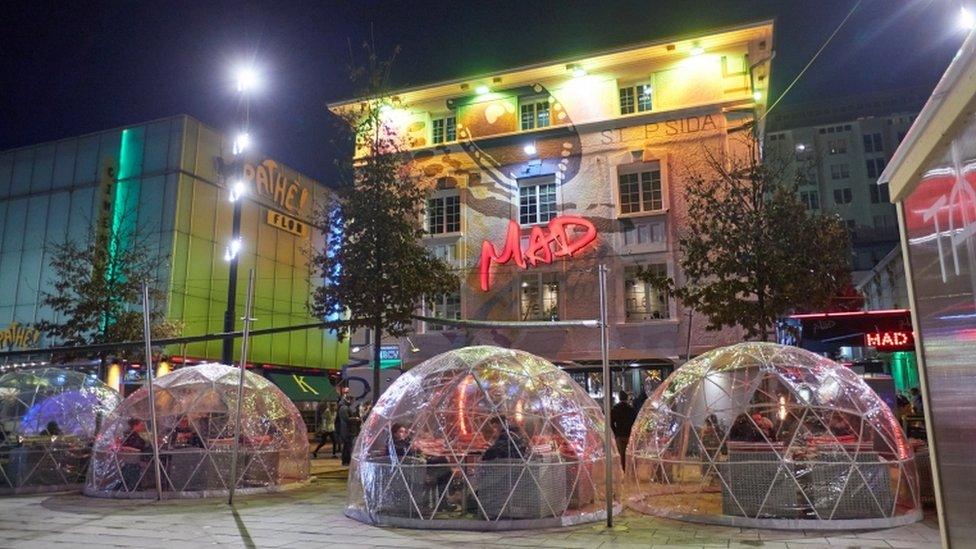
These restaurant bubbles in Lausanne were still open on Thursday and Swiss leaders now face a difficult choice
Some closed their restaurants, others stayed defiantly open. Quite a trade ensued in hopping on the train from one canton to another for a good night out.
Now infections have surged to more than 5,000 a day and total Covid deaths are approaching 7,000, averaging between 80 and 100 a day. The previous peak, reached in April, was 63.
Only this week a former Swiss president, Flavio Cotti, died reportedly of complications caused by the virus. Swiss leaders meet on Friday to consider whether to move to some form of partial lockdown.
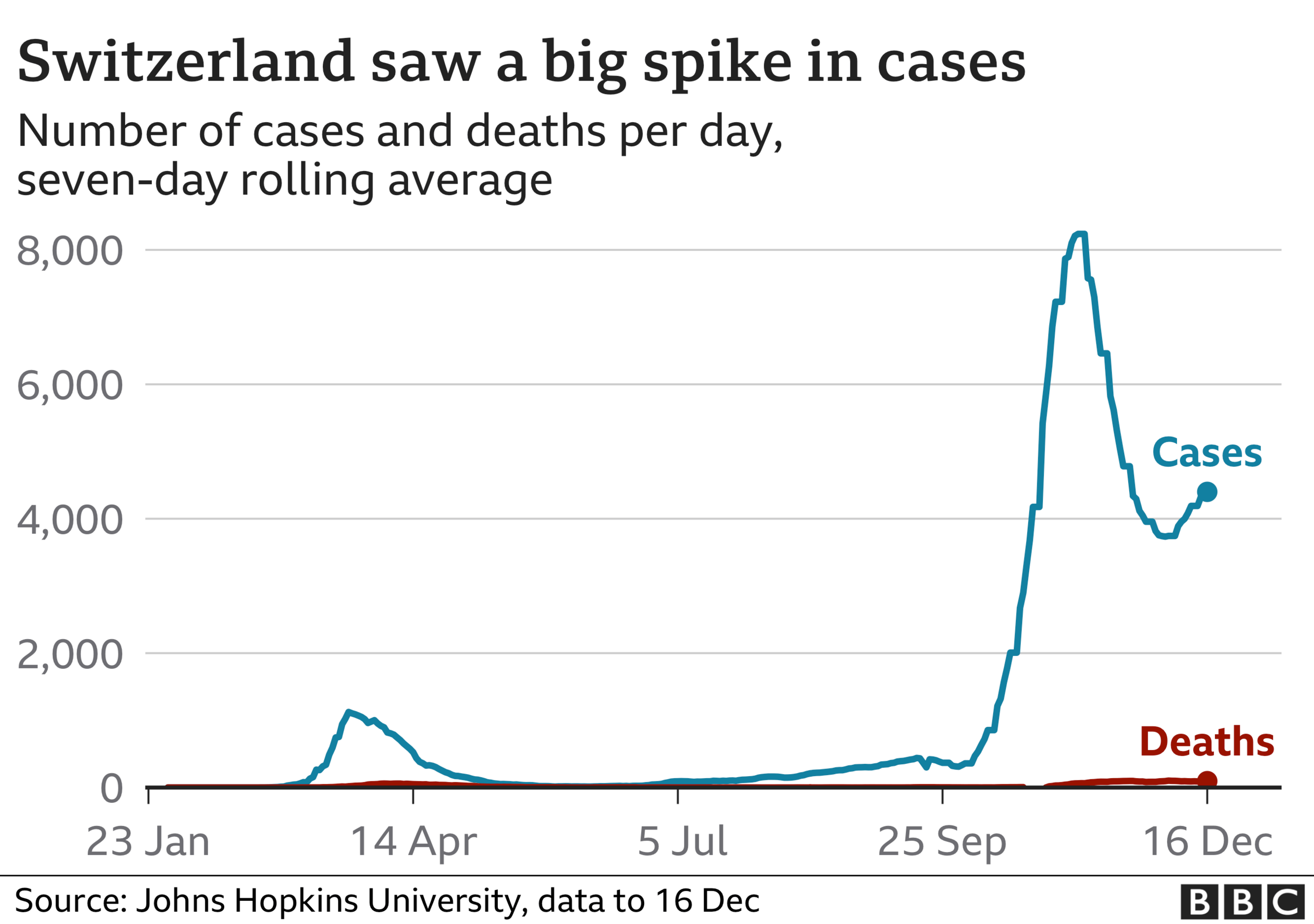

Do the Swiss think it's OK to die of Covid?
No they don't, but they do disagree about how to view the consequences of the pandemic and the restrictions that have accompanied it.
Those Swiss TV shows have featured debates between doctors, some of whom point angrily to the immense strain the hospitals are under, while others, often GPs, cite the increased levels of depression and stress they are seeing among their patients.
The vast majority of people who have died of Covid in Switzerland are over 80. One Swiss doctor told me that "we have forgotten how to die", and argued that offering mechanical ventilation to a very elderly person was inhumane, and unlikely to save their life.
Such comments are no comfort to families who have lost relatives to Covid, or to intensive care staff currently doing 12-hour shifts and facing Christmas without a single day off.
But they do reflect an approach to death that may be more pragmatic, if not more hard-headed, than some other countries. Switzerland's health service is good and life expectancy is one of the highest in the world, but many Swiss also spend a lot of time thinking about the finite nature of life.
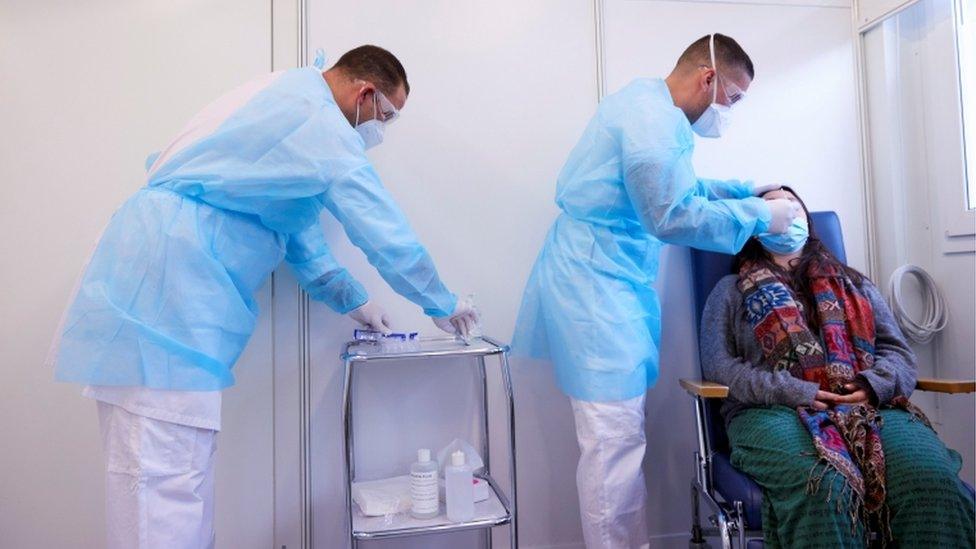
Swiss civil protection agents have been deployed to help authorities fight the pandemic
Assisted suicide is legal in Switzerland, those who want to try to avoid a long and painful passing are allowed to do so, and membership of assisted suicide organisations like Exit is commonplace. When the pandemic began, elderly people openly discussed what sort of treatment they might accept if they fell ill, and many said they did not want to be ventilated.
Isn't it just about money?
Some Swiss do argue that the economy has been prioritised over life, and when Switzerland's finance minister, a member of the right-wing Swiss People's Party said "we can't afford another lockdown", he angered many, not least his government colleague, the Social Democrat health minister.
In fact Switzerland has injected billions into support schemes to weather the pandemic, and last week topped up the fund again. But there have also been delays, complacency and basic uncertainty about what exactly should be done to cope with a pandemic caused by a brand new virus.
At the start of December 5,000 candles were lit outside Switzerland's parliament to mark 5,000 Covid deaths. By March, if things continue as they are, there could be 10,000 candles.
That is a catastrophe. Ruth Humbel's words, although they have attracted bitter criticism, are not what caused it.
What she actually said was that the virus "is another sign that our lives are finite", that "we need to learn to deal with death", that "every death (not just from Covid) is a loss, but not every death is a catastrophe".
Many Swiss would agree that is a discussion worth having, maybe just not right now.
Many markets in Germany have been cancelled due to the pandemic

CHRISTMAS: What are the Christmas restrictions around Europe?
RESTRICTIONS ACROSS EUROPE: Texting for permission to go out: Europe's lockdown rules
LOCKDOWN NEXT DOOR: Germans start holiday lockdown amid Covid surge
LATEST GLOBAL SPREAD: Tracking the global pandemic: Where has been hit hardest?
TRAVEL: What are the UK's rules?
LOOK-UP TOOL: How many cases in your area?

Related topics
- Published16 December 2020

- Published5 December 2020
